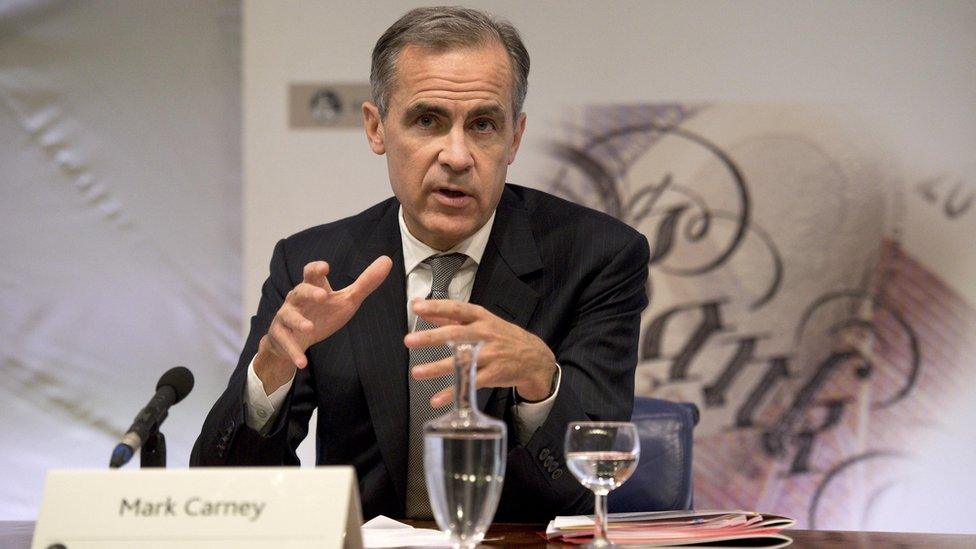Carney warns EU on risks of Brexit
- Published
- comments

Mark Carney has put his finger on one of the biggest debates developing in the City at the moment.
Brexit may hold risks for Britain - the economy and the supremacy of London as Europe's financial capital being two of them.
But the rest of the European Union also faces risks.
And, according to the governor, those risks are greater for the continent.
To be clear, Mr Carney was talking about financial stability, not economic growth - although of course the two are closely intertwined.
If financial stability is compromised, or liquidity conditions deteriorate, then economic growth is likely to be adversely affected.
Dominant force
In his evidence to the Treasury Select Committee, Mr Carney made three major points.
First, the UK's financial services sector provides 75% of foreign exchange trading for the EU, 75% of all hedging products (which help businesses insure against risk when making investments or buying products) and supports half of all lending.
As he said in November, the UK is Europe's "investment banker".
A sharp break in that liquidity and capacity support could be detrimental to financial stability in the EU.
Alex Brazier, the executive director for financial stability at the Bank, said that the UK exports £26bn of financial services to the EU, and imports just £3bn.
Which, he said, makes the point.
Brexit risk fades
Second, as far as the UK is concerned, Brexit is no longer the biggest risk to financial stability.
Now, that may be leapt on by the Bank's critics - the governor has changed his tune, it could be said, given that before the referendum Brexit was seen as the biggest risk.

Mr Carney said the UK economy is performing better than expected
But Mr Carney made it clear - the mitigating actions the Bank has taken since the referendum (a cut in interest rates and more financial support for banks and businesses) have, according to the governor, worked.
Better economic news than many predicted has also maintained confidence - and the governor suggested that the Bank was now looking at upgrading the UK economic forecasts for 2017.
More time
Third, transitional arrangements would be a positive help to smoothing the process of Brexit, avoiding what has been described as a "cliff edge" exit which may occur at the end of the two year Article 50 process.
Many in the City believe that given the complexities of the financial relationships between London and the rest of Europe, two years will simply not be enough time to build new regulatory and financial structures.
A period of "adaption" will be necessary.
Mr Carney's comments are likely to be welcomed in Number 10 and the Treasury.
The government believes that, whatever the present noises about the toughness of the EU position on Brexit flexibility, the role London plays in supporting the rest of the EU economy will be an important part of the negotiations.
Business leaders across the EU will want to maintain full access to UK's deep financial markets and widespread expertise.
And that will help Theresa May's push for the "closest trading relationship" with the EU, even if Britain does leave the single market as it is presently constituted.
Hard headed economics may trump EU politics.
Some believe this a forlorn hope, suggesting that political positions in the EU are hardening, not softening, towards the UK.
But, the more the warnings come from people like Mr Carney that Europe might just need the UK's financial muscle, the stronger Mrs May's negotiating hand will be.